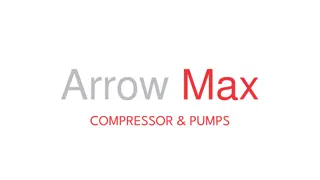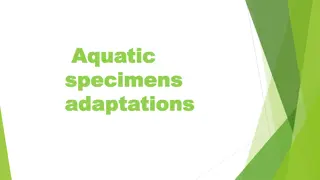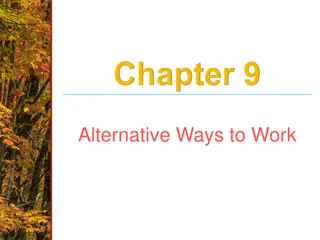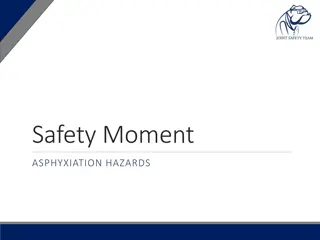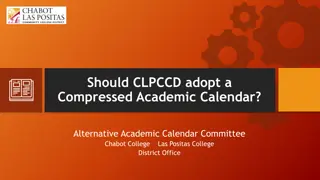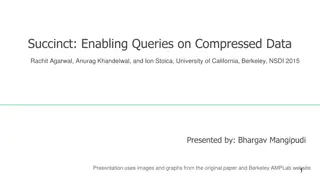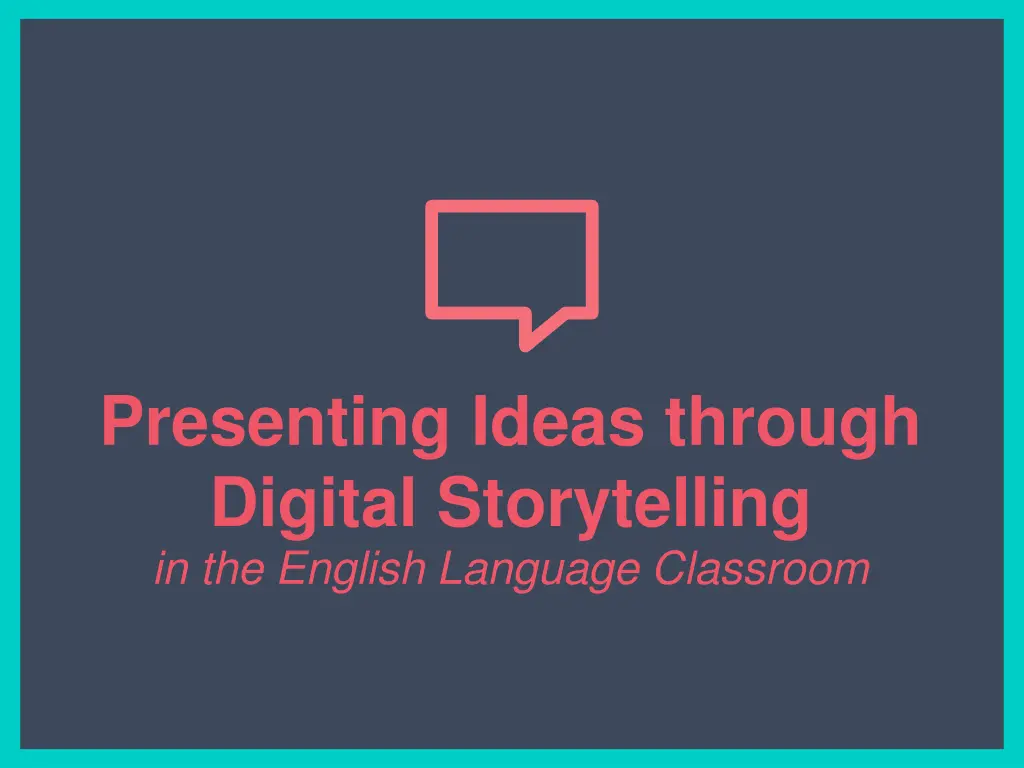
Engaging English Classroom Through Digital Storytelling
Explore the value of using digital storytelling in your English classroom. Identify key elements and steps to create effective stories. Overcome challenges and enhance student learning through multimedia products. Discover creative approaches to teach with visual and audio elements.
Download Presentation

Please find below an Image/Link to download the presentation.
The content on the website is provided AS IS for your information and personal use only. It may not be sold, licensed, or shared on other websites without obtaining consent from the author. If you encounter any issues during the download, it is possible that the publisher has removed the file from their server.
You are allowed to download the files provided on this website for personal or commercial use, subject to the condition that they are used lawfully. All files are the property of their respective owners.
The content on the website is provided AS IS for your information and personal use only. It may not be sold, licensed, or shared on other websites without obtaining consent from the author.
E N D
Presentation Transcript
Presenting Ideas through Digital Storytelling in the English Language Classroom
Lobby poll recap 1. Important components of a multimedia product 2. Student access to digital tools
Webinar objectives 1. Explore the value of using digital storytelling in the English classroom 2. Identify the key elements and steps of creating an effective story 3. Choose a next step you can take to explore using digital storytelling in your classroom
You should know This webinar is not a technology how-to guide Teachers will need to decide how they will assess students who make digital stories There are many challenges involved with using digital storytelling in the classroom
Digital Storytelling Audio Visual Story
More on digital stories Personal narrative Historical documentary Content area tutorial What? Teacher-made Student-made Who? How long? Short (2-5 minutes)
A digital story about Little Joe What visual elements do you notice in this story? What audio elements do you notice in this story? What kind of digital story is this? Who is the author of this digital story? How long is this story?
Overview 1. Why should I use storytelling in the English language classroom? 2. How do I present an effective story? 3. How do I use digital storytelling in my classroom?
Guiding Question How can I use digital storytelling in my classroom?
1. Why should I use storytelling in the English language classroom? The Power of Storytelling
Stories have the power. They delight, enchant, touch, teach, recall, inspire, motivate, challenge. They help us understand. They imprint a picture on our minds. Want to make a point or raise an issue? Tell a story. Janet Litherland, Author
The brains sync up Princeton Study (2010)
Engage Teachers need to be able to engage their students to motivate them to achieve Students need to be able to engage potential audiences to achieve academic success to remove language learning barriers to prepare them for success to develop their language skills to pursue future careers
Language Projects provide an opportunity to practice language in context allow students to use speaking, listening, reading, and writing skills give students a meaningful and interesting task to accomplish help students get repeated practice to improve their English
Other skills Multiple literacies 21stcentury skills
2. How do I present an effective story? The 7 Elements of Digital Storytelling
The 7 Elements of Digital Storytelling Dramatic question ? Emotional content Point of view Soundtrack Economy Pacing Voice
The 7 Elements of Digital Storytelling Point of view What is the purpose? What is the perspective of the author? Who is the audience?
The 7 Elements of Digital Storytelling Dramatic question ? What is the key question that holds the viewer s attention until the end of the story?
The 7 Elements of Digital Storytelling How do you want your audience to feel while viewing and listening to your story? Emotional content
The 7 Elements of Digital Storytelling How are you personalizing your story to help your audience understand the story s content? Voice
The 7 Elements of Digital Storytelling What background music will you select to help your audience connect to the content of your story? Soundtrack
The 7 Elements of Digital Storytelling KISS Are you Keeping It Short and Simple? Economy Are you using just enough media and words to tell your story?
The 7 Elements of Digital Storytelling What is the rhythm of your story? Is it fast or slow? Pacing Are there dramatic pauses?
The 7 Elements of Digital Storytelling Dramatic question ? Emotional content Point of view Soundtrack Economy Pacing Voice
Activity Remember the student s digital story from our pre-webinar activities? Let s watch it again and identify the elements.
7 Elements Notes Point of view Dramatic question Emotional content Voice Soundtrack Economy Pacing
1. Point of view Explore how stereotypes have affected her What is the purpose? What is the perspective of the author? Who is the audience? A girl from Thailand People she might meet The Rhetorical Triangle
2. Dramatic question What is the key question that holds the viewer s attention until the end of the story? ? How is she going to live with her big feet
3. Emotional content How do you want your audience to feel while viewing and listening to your story? She wants us to sympathize with her
4. The gift of your voice How are you personalizing your story to help your audience understand the story s content? Embarrassment Acceptance
5. Soundtrack What background music will you select to help your audience connect to the content of your story? Pauses Quirky, playful music
6. Economy Are you Keeping It Short and Simple? Are you using just enough media and words to tell your story? Simple narration Many pictures K.I.S.S. Various music changes
7. Pacing What is the rhythm of your story? Is it fast or slow? Are there dramatic pauses? Fast-paced like the life of a teenage student Dramatic pauses and changes in rhythm to match the mood 1:49
7 Elements Notes Point of view How will she solve the many challenges of living with big feet? Dramatic question Emotional connection Her personal voice is evident throughout the story. Voice Soundtrack There is music appropriate to the mood of the story. Economy The pacing matches the mood and changes. Pacing
3. How do I use digital storytelling in my classroom? A 5-Step Process
Notes from Brenner article Timeline for getting started and carrying out a semester project with your students Making a digital story yourself Making rubrics and assessing students Dealing with challenges that arise
Getting started View examples of digital stories Try making a digital story yourself View examples here: Educational Uses of Digital Storytelling UMBC Digital Stories Gallery
Digital story viewing guide What kind of story is it? What visuals does it have? What audio does it include? Who is the author? How long is the story?
7 Elements Notes Point of view Dramatic question Emotional connection Voice Soundtrack Economy Pacing
The Digital Storytelling Process 1) Idea and Script 2) Digital resources 3) Story- board 4) Import/record 5) Share
An idea Give them a task Get some ideas for educational tasks here: Creative Educator
Historical Documentary
Content Area Tutorial
Specific tasks Develop a story to advertise an event and get people to attend it. showcase a cause and get people to support it. market a product and get people to buy it.
The writing process the script Prewriting Writing Revision Editing Publishing
Pre-writing the rhetorical triangle Make it small, focused, and personal


